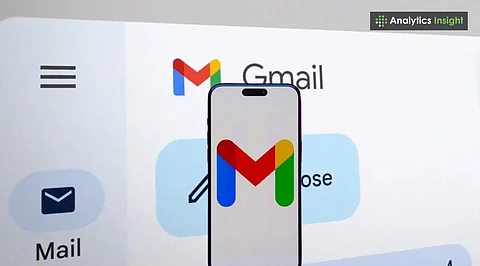

Gmail's AI summaries often miss important context and details.
Misleading summaries can cause miscommunication or missed actions.
Manual email reading remains essential for accuracy and clarity.
Gmail's recent integration of artificial intelligence summaries aims to enhance user productivity by providing concise previews of email content. With Gmail AI summaries, managing overflowing inboxes becomes much easier for busy professionals. While this development holds promise, concerns have emerged regarding its practical efficacy.
Gmail AI summaries help users save time by highlighting the most critical points from long email threads. Specifically, the summaries often fail to capture crucial context, misinterpret the intended message, or omit vital information, thereby rendering them unreliable, particularly in situations involving sensitive or high-stakes communication.
This article presents an in-depth analysis of Gmail's AI summaries, exploring both their potential benefits and limitations.
AI often has problems with subtitles. With Gmail summaries, essential parts of an email may be left out. A message that contains many questions or requests might be condensed into a single line that doesn't fully convey the entire picture. This could mean users miss tasks or get confused.
In business, even small mistakes can have big results. If you miss deadlines, attachments, or instructions due to poor summaries, it can disrupt work and harm relationships. AI can't understand things as well as a person.
Also Read: How to Use Perplexity AI for Business: Simple Tricks
One more problem: AI doesn't get tone. Emails have feelings, such as when something is urgent or intended to convey anger. AI might turn a furious email into a nice, calm summary. If that happens, people may not react quickly enough or make the right decision.
For example, the summary may state, 'The client gave feedback.' But the real email? It could be a huge complaint or someone yelling for quick help. Miss the original tone, and users won't understand how serious the situation is. Miscommunication can disrupt conversations with customers or even within the company.
Google is rolling out new Gmail AI features to enhance productivity and streamline communication. If you trust AI summaries too much, you might think they are always right. When summaries look easy to understand, you might assume they are correct and not read the whole email. This is bad because you might make choices based on wrong or incomplete summaries.
Relying too heavily on these summaries could harm projects, sales, or lead to legal issues. Complex talks might become confusing if a user only reads the summary. Therefore, it's risky to rely on these shortcuts, especially at work, where precision is crucial.
AI summaries review the entire email. Although Gmail checks for spam, the use of AI raises concerns about privacy for some people. Some might not like the idea of computers reading their messages, especially private ones.
Gmail AI Email summaries are handy for users who receive hundreds of messages a day. People are also wondering where this data goes. Although it's intended to be helpful, this feature allows more systems to view the contents of the email, which could cause problems for groups with very strict data rules.
AI does best with clear, standard English. Emails with local sayings, different languages, slang, or technical terms might confuse the summarizer, leading to an unclear or incorrect summary. Additionally, emails with tables, attachments, or special formatting are often converted into basic lines that overlook important details.
For users around the world who communicate in various ways, this is a significant issue. If you trust AI summaries in these situations, you could easily misunderstand things.
Also Read: Best Email API Services Accelerating Growth in 2025
AI isn't perfect, and Gmail's summaries are not an exception. While it can assist with basic tasks like newsletters, it cannot replace reading emails in important conversations. People still need to think critically, understand emotions, and comprehend the context, because machines can't do these things well.
AI summaries are becoming a standard feature across various platforms to facilitate faster content consumption. The answer is to find a balance. Let AI assist when it can, but not if it means losing accuracy. Important emails, such as those regarding clients, deadlines, contracts, or teamwork, still require careful reading.
Gmail's AI is part of the trend toward faster email. Quick isn't always better. The new Gmail Summaries tab provides quick insights into unread emails without requiring you to open each one.
If you rely on Gmail's AI summaries, they can be too much so that you might miss the vibe and the real point. For serious talks, pay attention to yourself. Until AI gets smarter, reading carefully is the way to go so you don't screw things up.
1. What is the main issue with Gmail's AI summaries?
Gmail's AI summaries often miss important context and details from emails.
2. Can Gmail's AI summaries misinterpret the tone of an email?
Yes, they frequently fail to capture tone, urgency, or emotional cues.
3. Is it safe to rely only on AI summaries for work emails?
No, relying solely on summaries can lead to misunderstandings or missed tasks.
4. Do Gmail's AI summaries pose privacy concerns?
Yes, processing email content through AI raises questions about data handling and privacy.
5. Are AI summaries accurate across all languages and formats?
No, performance drops with non-standard English, regional terms, or technical content.
